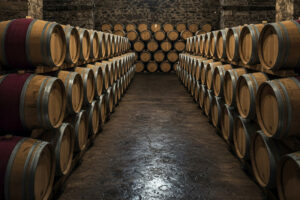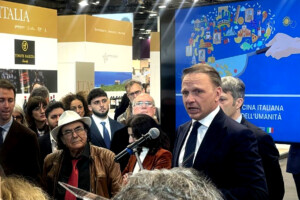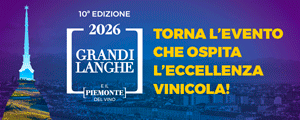As of November 15 there are 8 billion people on the Planet and, according to the United Nations, 25% of the world’s population will be Africans by 2050. A mosaic of countries (54) with varied situations, the Continent of Africa turns out to be a rather obscure market (on which, in recent days, the spotlight was shone at Wine2Wine, the business forum by Veronafiere), with a cross-section of opportunities for Italian wine in Angola, Ghana, Kenya, South Africa and Nigeria, where the rapid rise of the middle class foreshadows major growth that is already interesting. Around the table moderator and speakers with high-level curricula and expertise, to be emphasized to reassure Italian companies wishing to open export channels to these markets toward which there are many prejudices that add to the assessment of some objective criticalities. The meeting was particularly interesting for the producers present, because many of the numbers and trends contained in some of the reports - such as in that of the South African Sawis (Sa Wine Industry Information and Systems NPC9 of 2016 - were not reflected in the speakers’ experiences. Leading the way is Temitope Akintola, area manager for Mediterranean Europe and Africa Zonin1821 and head of the company’s worldwide e-commerce. A start at a very young age with a wine business in Nigeria, a stint as a multi-degree engineer in Italy, and a return to Nigeria with a master’s degree in business administration in Food & Wine from Bologna Business School, to found Going Global Consultancy, a firm specializing in path-to-market analysis and risk assessment for European countries wishing to expand into the African market.
Angola, four times the size of Italy, with 33 million inhabitants, is certainly very interesting for Italian wine. Speaking about this is Monteiro Deslandes, senior market analyst at the ICE Office in Luanda, opened in 2015, with expertise for Angola, Congo Brazzaville, Congo Kinshasa, Cameroon and Gabon, a reference for Italian companies interested in approaching a market as peculiar as the African one in the best possible way. There are many favorable factors in this regard: a very “Europeanized” population, due to the strong impact of Portuguese colonization, including the language; the presence of several existing ports and others under construction on the Atlantic Ocean that make it reachable; a climate not suitable for viticulture that excludes the prospect of domestic production; 99% Christian population; no limit to alcohol consumption; and, most importantly, a market on which, due to cultural influence, Portuguese wine dominates, inexorably declining, and not French wine. “Portugal”, explained Monteiro Deslandes, also a graduate in Italy in business consulting and business law from the faculty of law at the University of Brescia, “used to hold 95% of the market and is now at 82%, effectively exporting its surpluses. South Africa follows, by territorial contiguity; in third place is Italy, which therefore has a privileged position: Italian wine between 2020 and 2021 has doubled. Next are France and Spain. A different ranking from the one proposed by Wine Intelligence, which even places Spanish wines ahead of South African wines. Wine in Angola is considered a luxury good, so it is taxed, but the main problem to keep in mind is inflation, which in Angola is growing from 2% in January to 27% at the end of the year with the effect of tripling the price of wine over the year. Per capita consumption is 25 liters per year, 70% of the population is under 25 years old, and they switch from drinking juice and coke to wine. Therefore, low-alcohol wines are preferred, which nevertheless must provide a little intoxication. Here the preferred wines are sweet ones such as Muscat, which sells 7 million bottles, and those that mimic Amarone. Very important is the packaging: golden goes a lot. On distribution channels, importers are usually also distributors and sell to restaurants, hotels, and other retailers. Then there is a rather complex informal market that is not illegal, but tolerated. It is a kind of “window” for drinking a lot”. Also not true is the collapse of sparkling wines in Angola, noted by the same research institute, which, on the contrary, are going strong because young people are looking for playful moments and asking for them.
The passion for sparkling wines, of all types and nationalities, is across the board in Africa. “In Ghana, as in many other countries on the Continent, parties are held to celebrate life, births, graduations, engagements, marriages, but we also celebrate death in memory of the dead”, explained Vanessa Koko Djaba, a Ghanaian who graduated with honors from the London College of Fashion in 1997 and managing director and owner of Vdb Consultancy and Trade Ghana Limited with interests and investments in fashion and apparel, real estate, and the food and beverage industries. “The parties involve up to 1,000 people who want to hear the “pop” of the cap popping, and thus are good business. Ghana has a population with an average age under 35, but the 18-35 age group does not very often have adequate income to buy wine. It is therefore necessary to look at income rather than age. Considering that of the 33 million inhabitants of Ghana even one million drink a glass of wine a day, one can estimate daily consumption to be around 250,000 bottles, which excluding the 50 days of holidays when more is drunk, means at least 75 million bottles a year”. In short, even in the country of the black star there is room for Italian wines that are currently underrepresented.
“Italians find it hard to venture into terrain they believe is unknown and face limitations due to ignorance of the market”, continued Vanessa Koko Djaba, who has for developed her entrepreneurial skills in the UK by following with revenue success even innovative projects of companies such as Nike and Adidas. Italians are wary. When I contacted a winery about importing Amarone I was asked, “Can they afford it? Prosecco, which is less expensive than Champagne, could be very interesting because it is suitable for pairing with our recipes, but those who know the markets to start exporting it are not listened to. Italian wine produced from many different varieties has many opportunities because Pinotage is inflated and therefore different wines break through. In addition on the part of consumers there is an aspiration to consume better and higher priced wines, for example compared to Spanish wines that export volumes at low prices”. Vanessa Koko Djaba currently imports wines mainly from the Veneto region - for still Pinot Grigio and varietal Cabernet and Merlot - and then from Trentino Alto Adige, Friuli Vg, and Tuscany. Ninety percent of the wine comes to Kenya from Europe and then South Africa, Chile, and Argentina. It is a market favorably influenced by the flow of tourism that brings guests to the country from all over the world “to whom they offer good wine”, pointed out Soraiya Ladak, managing & sales director of The Wine Shop-Kenya, which imports, distributes and sells retail and on a very active e-commerce platform even fine wines in Kenya and Uganda. Out of a population of over 55 million, the middle class is growing and there are 16 million young people. “The availability of wine in the market is growing, and e-commerce is very important with fast delivery within 24 hours. There is room because consumers are tired of Chilean, Spanish and South African wines. They are looking for novelties and Italian wine can be one. Moreover, in Kenya there are many events and many Italians (ed. note: second after the British) that could facilitate entry; labeling requirements are easy, but you have to invest to overcome the barriers that exist, but are surmountable. It is necessary to have good importers, control the market in the country's five provinces, and provide stocks to give continuity of supply. From a long-term partnership with the importer, gradual but lasting growth can be achieved”.
Nigeria, Africa’s second-largest economy after South Africa with 211 million people of different religions, is one of the African countries with the highest alcohol consumption per capita, higher especially among younger people. According to the latest UN data, it will have the highest population growth in the next 28 years. A horizon to 2050 due to the number "of ambitious young people looking for quality wines”, according to Victor Ikem, founder and director of Drinks Revolution Limited, formerly national brand manager for Gruppo Campari's operations in Nigeria and dg Wine & Things Limited Nigeria. “In my country, the wine market has great opportunities for growth; it is receptive to both Old and New World wines-we import from France, Spain, Italy South Africa, and others. To enter and establish yourself you need to build relationships based on collaboration, also because you need to have a Nigerian partner to interface with Nafdac-National Agency for Food & Drug Administation”.
Victor Ikem himself also denounces several critical issues in the African country, second in economic and military power after South Africa. “In Nigeria there are many unfavorable factors to consider”, he warned. “There is a lot of unemployment and therefore high consumption of low-priced wines, high duties and taxes. Advertising has strict constraints: it is forbidden to consume alcohol before the age of 18 and it cannot be done in the vicinity of schools and religious institutions. The market structure is peculiar, with retail at 20%, horeca at 5%, and the remaining 75% open market. These are “informal” retail outlets in the markets of many large urban areas in the middle and southern belt, as the population of the Muslim faith (60%) is concentrated in the north. Then there is inflation, however, which opens up great possibilities for Prosecco to the detriment of Champagne”, on which, incidentally, France’s exports are concentrated.
Exporting Italian wine to South Africa, the Continent’s largest producer and a privileged gateway to Africa thanks to its ports, is a challenge. “I’m not the enemy: I also import Italian wines to South Africa”, jokingly began Nicolaas Wilem Smit, the only white-skinned man at the table, with long experience behind him, and now director of Cape Wine Group, a sales and distribution company specializing in supermarket and wholesale solutions, and co-owner of Clear Mountain Wines (Pty) Ltd, a bulk import and distribution company. “The opportunities in South Africa are focused on sparkling wines and whites”, he suggested, “but wines have to pass the specific criteria of our regulatory system, which are different from yours. You have to pay close attention to this, be in close contact with importers, otherwise the product will be blocked at customs. Prosecco has a great chance, but you are trying to enter the market from the gdo which is the wrong entry. Sales prices, in fact, must offer sufficient margins to retailers. And going back to the requirements, for example, the classification of sparkling wines based on residual sugar is different, so ignoring it runs the risk of having to relabel the wine. Better to start with small quantities and niche retailers with a 10-year horizon looking beyond the large-scale retail trade”.
In almost all of these African countries, online wine sales are a reality, which got an added boost with the Covid-19 pandemic. In Africa, e-commerce is set to grow, as is happening in South Africa even after the pandemic, and as will happen in particular in Ghana, “because many people”, explained Vanessa Koko Djaba, considered a pillar for the spread of Italian wine in Africa, “are ashamed to buy wine in person because they don’t know much about it. That’s why it’s essential to give information that makes it easy to buy and proper pairing directions with food, that is, with local dishes and not, for example, with pappardelle with mushrooms”.
Information and education about Italian wines are absolutely necessary in all African countries, as all the speakers emphasized, from which Vinafrica, conceived by Vanessa Koko Djaba to bring wineries to the customer, took off. A way to create a personal relationship between producers, customers and wine lovers in Ghana. It is an international festival-fair where wineries experience the reality of their African customers by experimenting with how and where wines are consumed and with what foods.
“Certainly Angola’s is a market that is very open for business”, Monteiro Deslandes, who specializes in marketing and international trade and financial markets, confirmed in this regard, “but it is necessary to make up for the lack of knowledge of Italian wine among consumers, as on the other hand in other potentially interesting African countries.
“In Kenya we want to educate people about wine”, Soraiya Ladak, who boasts Wset level 3, told about the topic. “Sommeliers are important to spread wine culture and I myself will open a school. To make Italian wine known requires promotion with little investment. Weekends and Italian weeks are not enough. Events and training are needed, as the French do. You need to build a relationship of trust by inviting us to you to see wineries and vineyards and by you coming to us with some continuity”.
Not different is the situation in Nigeria where “the growth potential for Italian wine is important, but only if supported by information and training to increase consumption”, as specified by Victor Ikem, who has over 15 years of experience in Consumer Marketing for the Nigerian Wine and Spirits sector. Training on Italian wines is also lacking in South Africa. “The French have been working on emerging markets by convincing young people to drink bubbles, not necessarily of a high standard”, noted Nicolaas Wilem Smit, who is also a consultant with his Wine Biz Consult (Pty) Ltd. You should do the same by working with distributors, including intermediaries, and retailers who know the market”. In short, a market, the African one, with many possibilities yet to be discovered, for Italian wine.
Copyright © 2000/2026
Contatti: info@winenews.it
Seguici anche su Twitter: @WineNewsIt
Seguici anche su Facebook: @winenewsit
Questo articolo è tratto dall'archivio di WineNews - Tutti i diritti riservati - Copyright © 2000/2026
























































































































































































